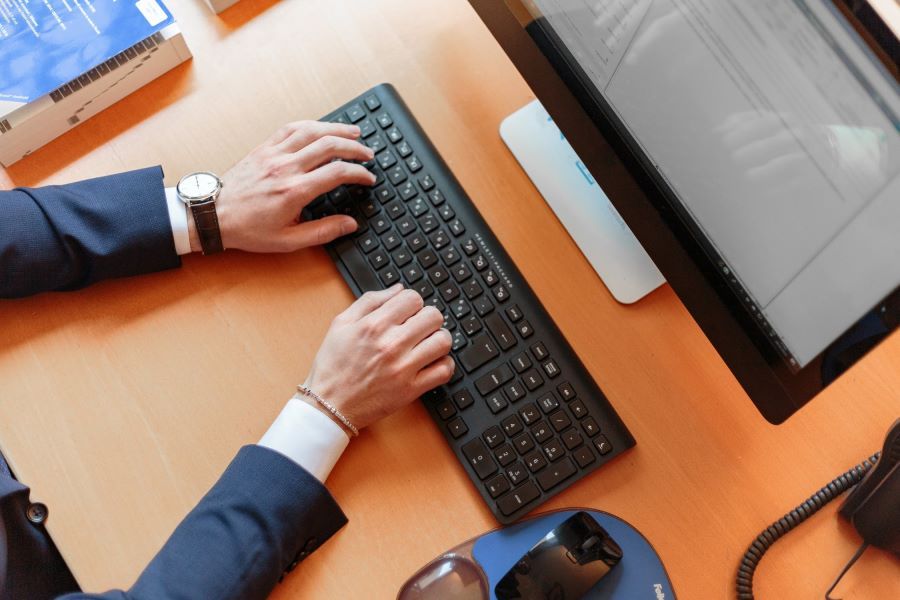It is no secret that in the modern world people try to optimize everything. With so many things to do, it is only natural that humans find the best possible solutions for multitasking and squeezing a maximum of tasks in a minimum of time.
This is, to no small extent, possible thanks to widespread and easily accessible technological devices. Almost every day there is a new gadget being developed or a system update being made.
Smartphones, laptops, headphones, smartwatches, webcams, cameras, tablets…
They all allow people to communicate with ease, “be” in many places simultaneously, and do several things at once. No wonder a single person often owns several of these devices. They are helpful. However, it can only be like that if they are working at an accurate speed. The world is fast. And to keep up with it, so should be your device.
Let’s focus on computers precisely.
Whatever the brand or the system, if your work is somehow reliant on a computer, a single crash can cause you a lot of trouble. You want to avoid that at any cost.
The maths is simple: the faster your PC runs, the more you can achieve.
Therefore, your goal is to make it work as productively, effectively, and quickly as possible.
There are several ways of improving your computers’ speed and making its performance the most optimal.
1. Choose a power supply unit (PSU) wisely
A power supply unit is a part of the hardware that supplies power to an electrical device. A computer requires changing the alternating current to direct current, and this is what a PSU does.
Long story short: it is the box that gives your computer the power to work. If you think it sounds important, you are right. It is crucial when it comes to the PC’s productivity. Choose your supplier wrongly, and you are doomed to an epic failure.
Although it is an essential part of the computer, it doesn’t necessarily mean it has to cost an arm and a leg. The best power supplies and budget gaming PSUs can be found all over the internet. It would be a good idea to take a moment and do the research before taking out your wallet. Otherwise, the purchase may end up in a big regret.
2. Reduce power consumption
Reducing power consumption will benefit not only your computer but also the environment. Saving energy does not have to be complicated nor fatiguing. It is all about the small changes. Adjustments that do not seem significant at first glance will accumulate and help enhance the power saving process.
Shut down your computer when you are not using it.
As obvious as it sounds. Why would your computer run for no reason? It is such a waste of energy. Unplug your PC when you are out of home, so it doesn’t consume standby power.
Use a charger only when charging.
This one is for laptop users. It is easy to forget about your charging device once you plug it. Be aware that the side effects of a laptop being charged for too long include eventual degrading of the battery and intensified energy consumption.
Keep external devices external.
What I mean by this is that there is no need for the printer, webcam, photocopier, and the speaker to be connected all the time. They require power to work. To save it, remove all the divides when you are not using them.
4. Check the hard disk
Defragmentation is one of the smartest ideas to keep your computer running effectively and productively. Unorganized data on your hard disk makes it work slower. Rearrange it to maintain the PC’s performance at its highest level. For the most optimal effects, do this regularly, and to make it most convenient for you, do it overnight.
5. Uninstall useless software
Many new computers come with trial-versions or limited-edition ones of various programs that you never knew existed. The PC manufacturers do it to encourage potential clients to buy the full version. If that is your case, keep those programs installed on your device.
However, if you do not feel like using them, consider uninstalling. It is an easy and simple way to free up the computer’s memory, processing power, and disc space. Getting rid of all the unwanted software at once should boost your PC’s speed significantly.
6. Run a virus scan
Some viruses work in such a way that it is hard to notice them for a regular user. That does not change the fact that they are minimizing the PC’s productivity. One of the signs suggesting your computer may be infected with a virus is when there is enough space on your hard drive, and the RAM is sufficient, but you still are experiencing slow performance. Do not hesitate to run a virus scan. Defining what the cause behind the sluggish conduct is, will allow you to eliminate it.
All in all
Trying some of these tricks should enhance your computer’s performance. Try several methods at once or mix them to get the best results. If that does not help, keep in mind that your laptop might have outlived its glory years. Buying a new one is always another option.








